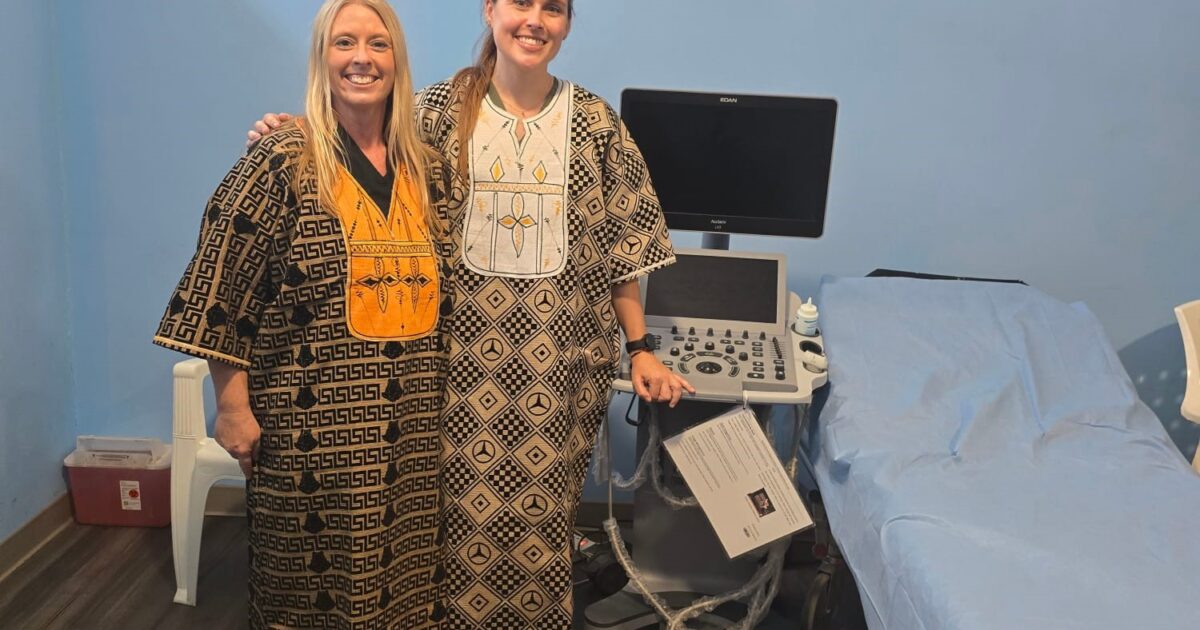The best and only choice to achieve universal health coverage

Following the approval of the Political Declaration on Universal Health Coverage by the United Nations General Assembly’s High-Level Meeting on Universal Health Coverage (UHC) on 21 September 2023, the Republic of Chile, the World Health Organization (WHO) and the Pan American Health Organization (PAHO)/the WHO regional office for the Americas, co-led a strategic dialogue on investing in primary health care (PHC).
“Many countries with the most advanced medical care systems were surprised by COVID-19 because of their historic lack of investment in primary health care. This meeting is critical to discuss two key areas for action,” said Dr Tedros Adhanom Ghebreyesus, WHO Director-General. “First, world leaders must make a political commitment to a primary health care approach. Second, it takes strong financial commitment to primary health care as a national development priority.”
Dr Jarbas Barbosa da Silva Jr, PAHO Regional Director of PAHO explained that: “Health systems rooted in primary health care will benefit every region, country and community. Together, by investing, innovation, implementing, we can forge a path towards transforming health systems to create a healthier future for all.”
In his opening address, H.E. Gabriel Boric Font, President of the Republic of Chile, highlighted the importance of working in solidarity for health, citing the Chilean Government’s experience in treating health as a fundamental human right. “Primary health care is not just lack of diseases, but this idea of well-being and therefore a preventive vision. It’s a change, not just about putting more money, but it’s a cultural change. How do we see health and how do we include something that is important for us in the Government . . . something which we believe that our citizens are entitled to.”
PHC is regarded as the best way to accelerate progress towards UHC. When implemented effectively, a PHC approach can help deliver 90% of essential health services that people need throughout their lives–from health promotion to disease prevention, treatment, rehabilitation and palliative care. It can also help increase average life expectancy by 3.7 years by 2030 across low- and middle-income countries.
Country perspectives
The meeting on “Investing in the radical reorientation of health systems towards PHC” underscored how sustained national investment in PHC-oriented health systems leads to positive health outcomes. Statements from countries and stakeholders further substantiated the growing body of concrete experience on how PHC works in different resource settings and national contexts.
The Chilean Government, for example, “implemented a public health system that is completely free. That is a main indicator of measuring the progress. It has allowed reduction of per capita expenses. And now we need to improve efficiency, how to implement telemedicine, how to improve management of stock and also waiting lists. This is what we are working on and we are on track. This was an equivalent of US$ 113 million in savings, in one single year, for Chilean funds where we eliminated the co-pay,” President Boric said.
William James Quince, Minister of State for Health of the United Kingdom reiterated that PHC is the most cost-effective, equitable to delivering universal health coverage and health security. “It’s been right at the heart of our national health service in the United Kingdom since the very beginning. A fundamental challenge is political commitment to a primary health care approach. Big infrastructure projects like tertiary hospitals and the unveiling of specialist technologies are, of course, politically attractive, yet it is primary health care that can deliver 75% of the projected health gains from the sustainable development goals, and if we listen to our communities, it’s the basics that they want to see…high quality care that responds to their individual needs.”
“Adequate financing for PHC flows from political leadership. In the UK we are committed to growing our domestic investment in primary and community care faster than the overall national health service budget with long-term commitment to growing public funding of primary health care underpinning progress on universal health coverage. And political leadership can unlock the partnerships across government, with the private sector and most importantly with communities, that delivers the multisectoral approach that is needed to radically reorient health systems towards primary health care that both prevents and treats ill health,” said Minister Quince.
In Brazil, primary care serves as a very important basis for a unified health system. Brazilian Health Minister, Dr Nísia Trindade said that their “family health strategy model reduces infant mortality rates, hospitalizations for conditions responsive to primary care and mortality from cardiovascular diseases.” She also pointed out that science, technology and digitalization need to be embraced in the new era of PHC.
“Egypt succeeded in combating Hepatitis C after being one of the top countries suffering from the virus. And this happened through the points of care within primary health care. We managed to screen 65 million Egyptians. We’ve done this also for women’s health (for breast cancer), also for congenital heart disease for children, and recently for discovering four types of cancer,” said Egypt’s Minister of Health and Population, Dr Khaled Abdel Ghaffar. He further highlighted that the efficacy of primary care will minimize the pressure on secondary and tertiary health care in Egypt by 60%. “We can solve a lot of problems by facilitating quality service at the primary health care unit and then secondary and tertiary health can do their job.”
Dr Maria Teresa Barán, Minister of Health of Paraguay, described PHC as the only viable option to achieve UHC. “Health is not just the responsibility of health budgets, but it’s also influenced by social and environmental and financial factors. We need to face these determinants of health in a comprehensive way, cooperating with other sectors and promoting public policies that can promote equality in health,” she said. Paraguay has made strides towards primary health care through a comprehensive intercultural model based on healthy units of the family since 2008.
Kazakhstan hosted the Alma Ata and Astana conferences of 1978 and 2018—two historic meetings where countries declared their support to health for all through PHC. Dr Azhar Giniyat, Minister of Healthcare of Kazakhstan, said that they launched a PHC Demonstration Platform at the regional level in March 2022 to share the country’s experience. The international conference on PHC was held in Kazakhstan on 23 October, marking the 45th anniversary of Alma-Ata and 5th anniversary of the Astana declarations.
Dr Karina Rando, Minister of Health of the Republic of Uruguay shared that Uruguay has migrated to a new paradigm from being reliant on hospitals to stronger primary care. The country’s integrated public health system is supported by public health providers with some complimentary private provision, reaching the most remote parts of the country. After the pandemic, Paraguay also worked to strengthen telemedicine to help address health workforce shortage, particularly in rural areas.
“For millions of people, especially the poorest women, their first and only contact with the health system is a woman community health worker,” said Dr Roopa Dhatt, Executive Director and Co-Founder of Women in Global Health. “Last year, Women in Global Health calculated that at least 6 million of these women worked unpaid or grossly underpaid in formal health system roles. Our biggest opportunity for radically strengthening primary health care is to move them into formal sector jobs. Health systems will be stronger when they have paid, decent jobs and when their work is recognized and recorded.”
WHO priority
In his closing remarks, Dr Bruce Aylward, WHO Assistant Director-General, Universal Health Coverage, Life Course highlighted the urgency that was palpable and the political imperative for rapid action on PHC with strong governance, financing, and engagement. It all must be anchored in the right to health. He emphasized that supporting countries to radically reorient their health systems towards primary health care is a central priority for WHO.
The world is no closer to achieving UHC than in 2015, when governments agreed on the 2030 Agenda for Sustainable Development. Over half of the world’s population was not fully covered by essential health services and billions of people faced financial hardship due to out-of-pocket health costs.
The WHO-UNICEF operational framework for primary health care provides a compass for action that can be adapted by all countries of the world to get back on track towards UHC.
Highlights in a nutshell
|
Watch the video recording
link






:max_bytes(150000):strip_icc()/Health-GettyImages-1480167734-3a38d4617ee14cacaaa5a7648f1d3895.jpg)
